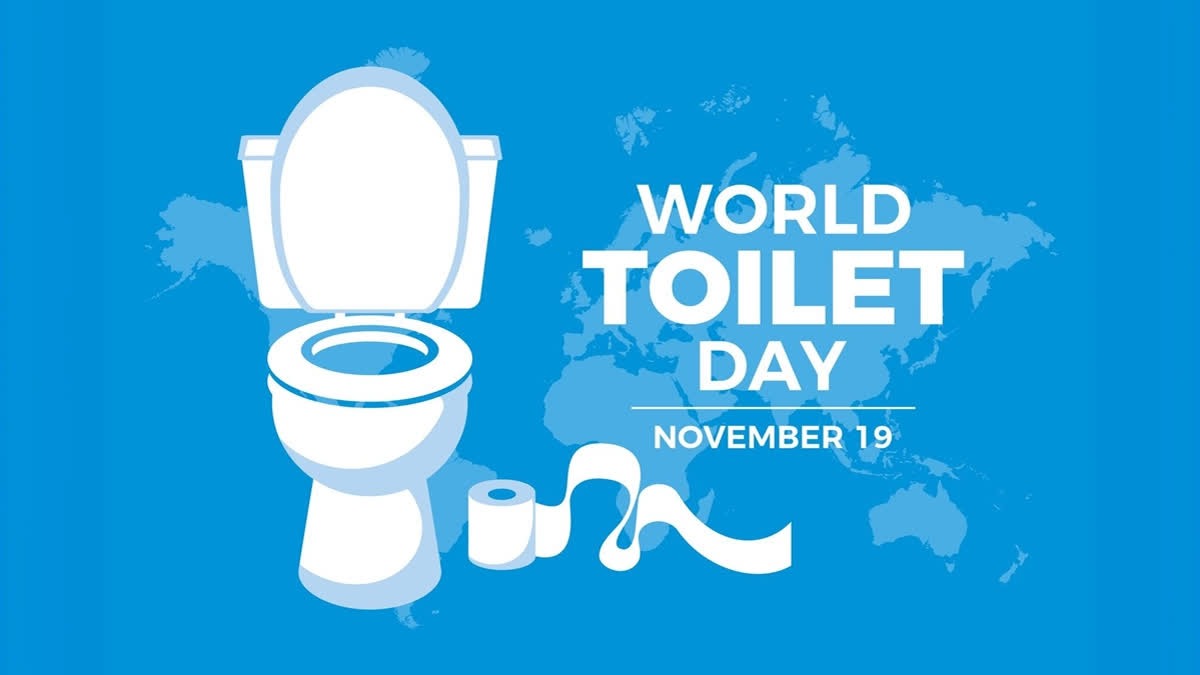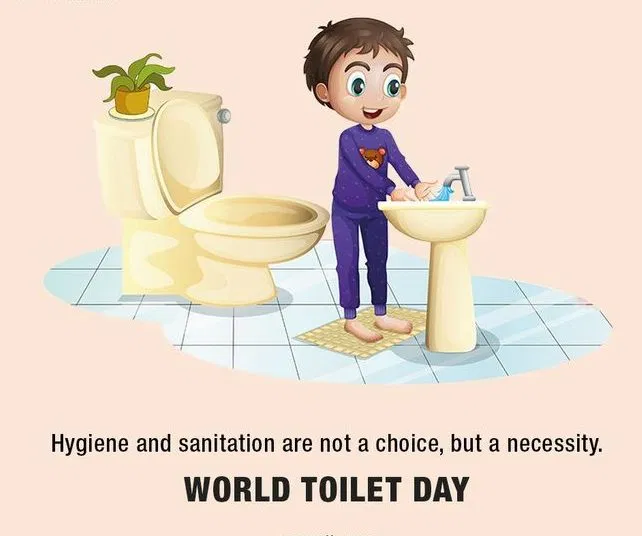Date: November 19

Around the world, billions of people still lack access to clean toilets, with far-reaching consequences for health, dignity, and opportunity.
You may not realize it, but having access to a toilet is essential for your health, safety, and well-being. What have you done about it?
Why this day matters
- Over 4.2 billion people worldwide live without safely managed sanitation, putting their health and future at risk. This makes inadequate sanitation one of the most pressing global issues.
- Lack of toilets is a major driver of disease, causing 432,000 deaths each year due to diarrhea. The link between poor sanitation and deadly diseases is well-documented, with children under five being the most vulnerable.
- Open defecation is still practiced by 673 million people worldwide, creating unsanitary conditions that increase the risk of contamination and the spread of diseases.
- Millions of children, especially girls, miss school due to the lack of private, clean, and safe toilet facilities. This absence leads to increased absenteeism and poor academic performance.
- Sanitation inequality is a significant issue. The poorest, marginalized, and rural populations are disproportionately affected by the lack of sanitation, with women and girls often bearing the brunt of the crisis.
What you risk without a toilet

- Health risks from diseases like cholera, dysentery, and typhoid, which spread through contaminated water and food. Unsafe sanitation contributes to the spread of pathogens, leading to preventable diseases.
- Environmental damage as human waste is often disposed of in rivers, lakes, or open spaces, which pollutes the environment and contaminates water sources.
- Loss of dignity for women and girls, who are often forced to relieve themselves in unsafe places such as fields, public spaces, or makeshift facilities, compromising their safety and well-being.
- Economic loss due to healthcare costs, lost productivity, and the negative impact on education. Inadequate sanitation is a hidden barrier to progress and social development, costing economies billions every year.
- Human rights violations as access to sanitation is considered a basic human right. Lack of toilets infringes upon the dignity and safety of individuals, particularly in marginalized communities.
What you gain with a toilet
- Better health through the prevention of diseases transmitted by poor sanitation. Proper sanitation can help eradicate diseases like cholera, hepatitis, and other waterborne illnesses.
- Safer, cleaner environment that promotes hygiene and reduces pollution. Access to clean toilets helps keep neighborhoods free from the dangers of open defecation and polluted water sources.
- More time and productivity, as people no longer need to waste hours walking long distances to access sanitation facilities. This time can be spent on productive activities such as work, school, or leisure.
- Improved dignity, especially for women and girls who need privacy and security for their personal needs. A clean, safe toilet offers a sense of comfort and security, reducing the risks of sexual harassment and violence.
- Access to education, as children can attend school without the barrier of inadequate sanitation facilities. Proper toilets in schools help keep children in class, improving attendance and academic performance.
Ask yourself
- Do you or your family members have access to clean and safe toilets? Think about how your life would change if you didn’t have access to a proper toilet.
- Have you considered the impact of open defecation on your community and environment? Open defecation leads to contamination of water sources, affecting everyone, especially in rural areas.
- Are you supporting initiatives to improve sanitation in your area? Every small effort counts, whether it’s spreading awareness or donating to sanitation projects.
If yes, today is a good day to take action.
How to take action
- Advocate for better sanitation in your community by contacting local government officials and urging them to prioritize sanitation services. Make your voice heard and encourage others to join the cause.
- Support initiatives that promote access to clean water and toilets by donating to NGOs or volunteer organizations that are working on sanitation projects.
- Speak to your local government about improving sanitation infrastructure in public spaces, schools, and healthcare facilities. Ask about plans to build or improve toilets in underserved areas.
- Educate others about the importance of proper sanitation and hygiene practices. Teach children, peers, and communities about the need for clean and safe toilets.
- Push for change by supporting and sharing anti-open defecation campaigns and awareness initiatives on social media. The more people understand the issue, the faster we can find solutions.
How you can help others
- Donate to NGOs working to build toilets in underserved communities. Organizations like WaterAid, UNICEF, and the Bill & Melinda Gates Foundation are working to bring toilets to those who need them most.
- Volunteer with organizations that work on sanitation and clean water access. By volunteering your time, you can make a direct impact on your community.
- Raise awareness by sharing information on sanitation issues in schools, workplaces, and local events. Encourage people to talk about sanitation openly and create a culture of awareness.
- Support the construction of toilets in rural or underserved areas. Your contribution can help fund the building of sanitation infrastructure and improve the lives of thousands.
- Educate about handwashing and hygiene: Proper sanitation includes teaching people the importance of hygiene, particularly handwashing, which prevents the spread of diseases.
Toilets save lives. They improve health, protect the environment, and enhance quality of life. Access to toilets is a basic human right, and it’s time to make sanitation a priority for everyone, everywhere. You can make a difference today by taking action. Let’s work together to ensure that no one is left behind when it comes to sanitation and hygiene.